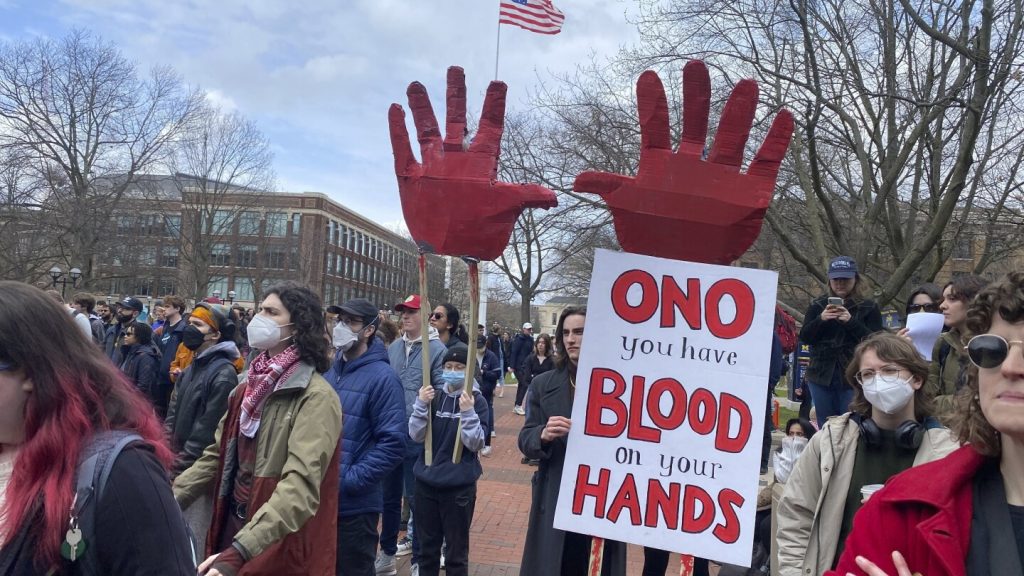A University of Michigan proposal to deter disruptions on its campus after anti-Israel protesters interrupted an honors convocation has sparked backlash from free speech advocates. The policy, which has not yet been implemented, could result in suspension or expulsion for students and termination for university staff. The March 24 protest by groups calling for the school to divest from companies linked to Israel is just one of many demonstrations on college campuses across the United States as Israel continues its war in Gaza against Hamas. University President Santo Ono expressed disappointment in the protesters, stating that while protest is valued and protected, disruptions are not acceptable.
The conflict between Israel and Hamas has resulted in a devastating humanitarian crisis with a significant loss of life in Gaza. The University of Michigan has been at the center of demonstrations calling for divestment from Israel and war profiteers. The proposed policy would prohibit disruptive behavior such as interrupting speakers or performers, with violators facing reprimand, disciplinary probation, suspension, or expulsion for students, and misconduct allegations or termination for staff. The policy aims to protect the university’s values and ensure a respectful environment for all members of the campus community.
Students Allied for Freedom and Equality, a Palestinian solidarity group, led the protest at the University of Michigan, demanding divestment from Israel. Some students and staff have voiced concerns that the policy may restrict free speech and limit the ability to engage in disruptive protests. The American Civil Liberties Union of Michigan raised issues with the policy, stating that it is vague, overbroad, and risks chilling free speech and expression on campus. University officials are reviewing feedback from the community to ensure the policy aligns with the school’s mission and values.
The university is taking measures to address the concerns raised by the community regarding the proposed policy. Assistant Vice President of Public Affairs Colleen Mastony stated that the school will not rush the development of the new policy and will ensure all voices have an opportunity to be heard. The lack of clarity in the policy has led to concerns among faculty members, with fears of facing sanctions or denial of tenure for participating in protests. The debate over freedom of speech and expression on campus continues, emphasizing the need to balance respectful discourse with the protection of university operations and values.
There is ongoing debate on campus regarding how to handle protests and demonstrations while upholding the principles of free speech and expression. Faculty members are grappling with the complexities of the Israel-Palestine conflict and the impact of the proposed policy on their academic freedom. Chair of the Senate Advisory Committee on University Affairs, Thomas Braun, acknowledged the challenges of addressing global issues within the campus community while also respecting diverse viewpoints. The university aims to create policies that support open dialogue, define key terms clearly, and promote understanding of divergent opinions while preserving the values of free speech and expression on campus.


